Photographs: Reuters
Arun Jaitley, leader of Opposition in the Rajya Sabha, while addressing the National Executive of the BJP at New Delhi said that the current economic situation in India is quite worrisome as "we watch helplessly the growth momentum slipping rapidly on account of high inflation and loss of business confidence because of failure of governance and corruption in high places".
Here are the excerpts from his address:
"The economic environment in the country has suddenly become dismal. The UPA blamed the Left Front for the paralysis in economic decision making during UPA-I. However, there is no such compulsion during UPA-II."
"The nation had expected the government to take policy decisions so that the economic activity in the country could be expedited. Regrettably, India is no longer being show-cased as an investment destination.
"There is a decline in economic activity. Infrastructure creation has taken a back seat. Success stories like the National highway Development programme and the Telecom sector have been plagued by scandals."
. . .
BJP on all that is wrong with UPA's economic policies
Photographs: Reuters
"The ministerial choice in some of these departments has been questionable. The government has run out of ideas on how to control inflation. The only step taken so far to control inflation is to hike the interest rates repeatedly which are creating a credit squeeze in the country.
"No effort is being made to generate further economic activity in various sectors so as to address the supply side problem. Policy initiatives in the matter of economic reforms have come to a stand still. The situation created on account of increase in oil prices has added to the woes of the common man.
"Not only is he burdened with increase on account of the rise in the price of international crude, he is further burdened by the ad-valorem tax structures where government revenue also increases with every hike in prices.
"The entire burden has been passed on to the consumers adversely affecting the aam aadmi and the farmers. A heartless government ruthlessly increases the oil prices periodically and hikes interest rates every quarter.
"This is making the economy sluggish. The lack of initiative in infrastructure and policy formulation fronts has contributed to the depleting investment environment in the country. India is now in the news for the wrong reasons."
. . .
BJP on all that is wrong with UPA's economic policies
Photographs: Reuters
"The maximum cases of corruption particularly corruption of high values and in high places has adversely affected the investment environment in the country.
"The cumulative effect of the above situation is that it has contributed to decline in economic activity, loss of jobs, depleting revenue and a flight of investment. High levels of inflation have worsened the investment environment.
"We are now on the door steps of a visible slow down coupled with high inflation.
"Though the monsoon this year has been encouraging and it promises a good agriculture harvest, the Indian farmer is still faced with the inevitable sequence of the rising input costs and moderate procurement values.
"The indebtedness of the farmer leading to several suicides still presents a gloomy picture."
. . .
BJP on all that is wrong with UPA's economic policies
Photographs: Reuters
"The UPA government came to power on the slogan of watching the interest of the aam aadmi. It has played a cruel joke on the poor of this country by having the planning commission recommend that Rs 32 per day (less than 1 dollar) is enough for a person to be classified as non-poor.
"Being non-poor would deny to such a person the benefit of state support in many areas where subsidies are intended to help the poor man.
"Having committed this blunder, there does not appear to be serious introspection in the government to retract from this position."
GDP decline
"When the finance minister presented Budget 2011, he was very optimistic that he would achieve a growth rate of 9 per cent with an outside band of + 0.25 per cent in 2011-12. But the latest trends paint a rather gloomy picture. The first quarter GDP growth rate is only 7.7% in 2011-12.
"The precipitative fall in GDP is because of the slowing IIP (the Index of Industrial Production). The IIP was a mere 3.3% in July 2011 as compared to 9.9% in July 2010. The IIP growth in April to July 2011 was 5.8% as compared to 9.7% in the April-July 2010."
. . .
BJP on all that is wrong with UPA's economic policies
Photographs: Reuters
"The industrial growth slowdown is markedly severe in mining and construction . The growth in mining is only 1.8% in first quarter of 2011-12 as compared to 7.4% in the first quarter of 2010-11 and 7.2% in the first quarter of 2009-10.
"For construction, the growth in the first quarter of 2011-12 is 1.2% as compared to 7.7% in 2010-11 first quarter and 5.4% in 2009-10 first quarter. The manufacturing sector is showing all signs of a major slowdown.
"The quarterly growth rates which increased from a low of 4.3% in first quarter of 2009-10 to peak at 15.2% in the last quarter of 2009-10 declined steadily during 2010-11 and the first quarter of 2011-12 it was at 7.2% growth rate.
"There are thus significant possibility of a major slowdown. With interest rates tightening and inflation leading to rising input costs, the industrial growth story is in complete disarray as on date."
Capital goods
"In fact, if the components of IIP are analyzed, it is seen that growth in capital goods which was 40.7% in July 2010 is now a negative of 15.2% in July 2011."
. . .
BJP on all that is wrong with UPA's economic policies
Photographs: Reuters
"The growth in capital goods in April-July 2010-11 was 23.1% has reduced to 7.6% in April-July 2011-12. Similarly, in intermediate goods , the growth in July 2011 turned negative to 1.1% as against 5.8% in July 2010.
"The growth in intermediate goods which was 10.1% in April-July 2010-11 declined to 0.8% in April-July 2011-12.
"There is a marginal slowdown in the Core infrastructure supportive industries such as steel, cement, fertilizers, coal, oil and gas from 6.5% in April-July 2010-11 to 5.8% in April-July 2011-12."
Credit squeeze
"The monetary market has undergone a process of tightening as RBI increased the Repo rates 4 times so far in the current financial year, a cumulative of 150 basis points.
"With the cost of borrowing moving northward, business is finding it all the more disheartening to pump fresh investments."
. . .
BJP on all that is wrong with UPA's economic policies
Photographs: Reuters
Revenue situation
The revenue position of the government is also not satisfactory. The budgeted revenue projections (18%) were based on an assumed GDP growth rate of 9% and an anticipation that inflation would remain pegged at around 5%.
"In the current scenario, the GDP has already slipped to 7.7% and given the inflationary trend close to double digits and the international situation, with the United States and European Union economies faltering under sovereign debt defaults/downward ratings, one would not be surprised if the current years' GDP falls further.
"That would throw the revenue receipts off gear completely. The signs of a major slippage in revenue growth are already there. Tax revenue (net) during April-July 2011-12 recorded an increase of only 1.1%.
"The tax-revenue growth during the corresponding period of 2010-11 was 30.7%. The drastic reduction is certainly indicative of the shrinking health of the economy."
. . .
BJP on all that is wrong with UPA's economic policies
Photographs: Reuters
Fiscal deficit
"This brings us to the issue of the fiscal deficit. Containing the fiscal deficit to the levels promised in the Budget (4.6% of GDP) is important to manage and contain public debt to sustainable levels in the long term and inflation in the short term which is the major concern.
"The current situation is that fiscal deficit as a percentage of the revenue receipts of 2011-12 (BE) is 55.4% as compared to 23.8% of the corresponding period in 2010-11.
"The revenue deficit is at 63.4% of revenue receipts of 2011-12 (BE) as compared to 18.1% of the corresponding period in 2010-11. The primary deficit is at a whopping 111.3% of the revenue receipts of 2011-12(BE) as compared to 24.5% of the corresponding period in 2010-11.
"If today's media reports are seen, the government has decided to borrow Rs 53,000 crore (Rs 530 billion) more from the markets than budgeted. This can hardly be called fiscal consolidation ..it is in fact fiscal derailment.
"With no scope for another windfall bonanza like the 3G auction, the government seems to be in a desperate situation. The UPA which has all along given lip service to divestment now seems to be clutching this as the last straw to bail itself out.
"With a government crippled from within, there is not even a ray of hope that anything significant would happen."
. . .
BJP on all that is wrong with UPA's economic policies
Photographs: Reuters
Inflation
"With ballooning fiscal deficit funded by increased public borrowings, the economy which appeared to be coming out of the grip of high inflation of around 20.2% in February 2010 to 9.3% in January 2011 is once again being lapped up by another vicious inflationary spiral as the inflation is inching up again towards the double digit figure.
"The inflation in August 2011 is reported at 9.78% which is the highest in the last 13 months. The inflation for July 2011 is 9.22%. Sustained high inflation is the cause for slackening business confidence and a declining trend in investments."
FDI inflows declining
"FDI in India has been on the decline since 2008.In 2008, the FDI was $42.5 billion which reduced to $35.7 billion in 2009 and $24.6 billion in 2010.(UNCTAD report).
"As per the DIPP, the pure equity FDI inflows in India declined from $27.33 billion in 2008-09 to $25.83 billion in 2009-10 to $19.4 billion in 2007-08.
"The trend in the current year is not too encouraging as in April 2011 only $3 billion inflow is recorded. As per a UN report, FDI inflow increased significantly in other BRIC countries during the same period."
. . .
BJP on all that is wrong with UPA's economic policies
Photographs: Reuters
"India's position in FDI slipped from 8th to the 14th position. Even Bangladesh has registered a growth in FDI during this period."
Indian industries moving out
"On the other hand , there is a trend of Indian industries investing abroad in greater measure as they find other economies as more conducive. The outbound FDI which was in the range of $20 billion in FY 2009 and FY 2010 has more than doubled in 2011 to $44 billion.
"With capital flight, there is loss of jobs and growth opportunities. The UPA has miserably failed in inspiring the investors both inland and external. "
Exports
"There seems to be some good music on the Exports front which increased by 81.8% in July 2011 as compared to July 2010 while imports grew at 53.98% during the same period.
"The export growth in August 2011 is 44.2%. To a dispassionate viewer, this data would be rather puzzling. We all know that the US and EU economies are going through a very trying time.
"They are traditionally India's trading partners contributing the maximum export demand. If these economies are not importing as much as they should be, the question arises as to who is importing from India."
. . .
BJP on all that is wrong with UPA's economic policies
Photographs: Reuters
"There are media reports that a recent IMF study showed that imports from India as reported by other countries do not add up to these exports figures.
"There are also reports that black money stashed abroad is being illegally brought back as export proceeds through over invoicing. But if the Government is serious to know the truth and plug the loopholes, it should examine these allegations seriously instead of trying to bask in glory where none exists .
"There has been much talk by the UPA of channelizing investments in to the infrastructure sector through the PPP route. It has been seven years of UPA rule but no major achievement is worth citing.
"To sum up, the current economic scenario in India is one of stagnation in growth saddled with high inflation. Whether it can be strictly called stagflation is a technical issue, but the features all seem to be there.
"There is a decline of growth with all round increase in prices. It is a structural problem created by the UPA's inability to bring forth the correct policy prescriptions to a dynamically changing scenario.
"The reforms that were due have not happened. There is crony capitalism, corruption and the increasing tolerance for the same within the UPA. The economist prime minister appears to be helpless."

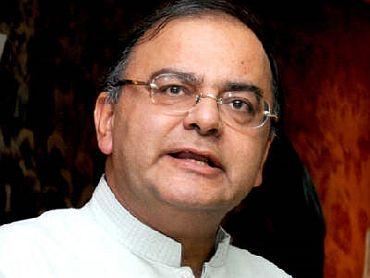
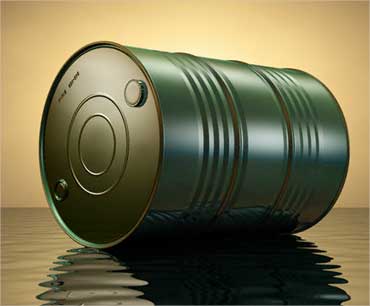
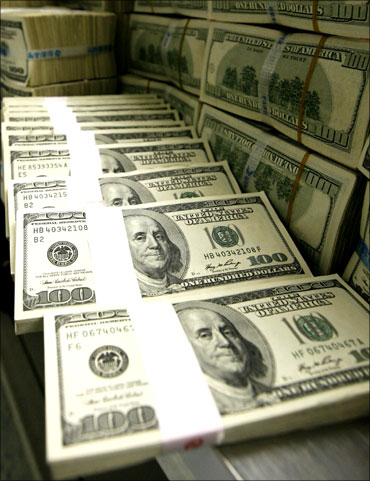
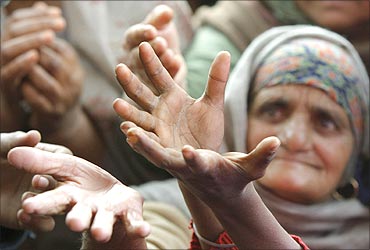
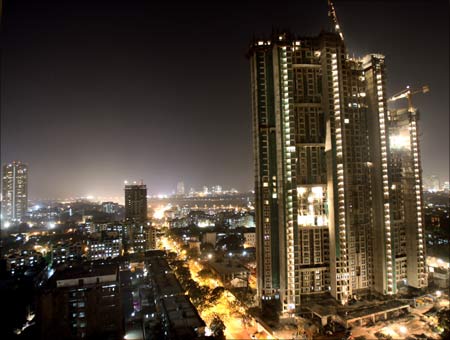
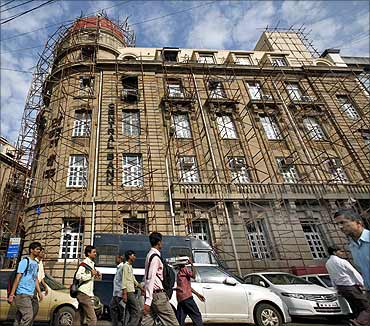
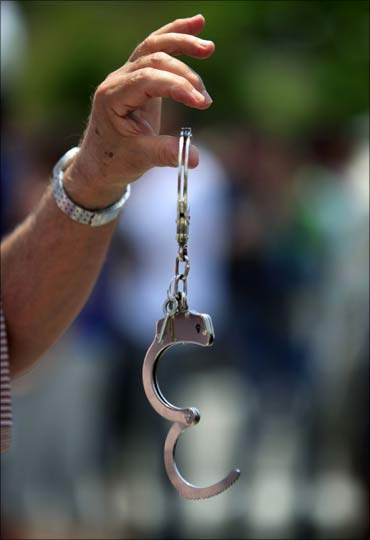
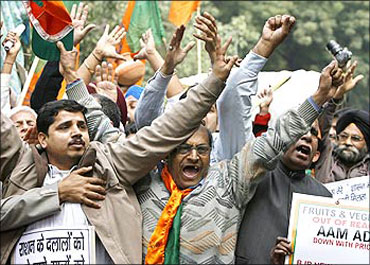
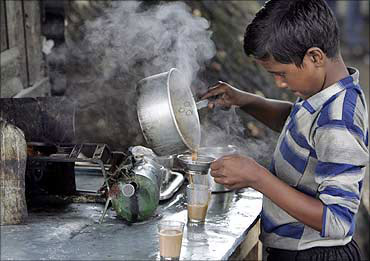
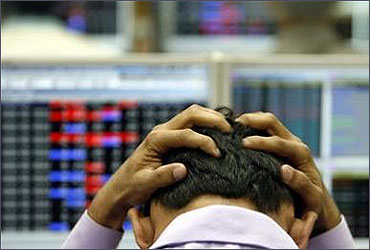
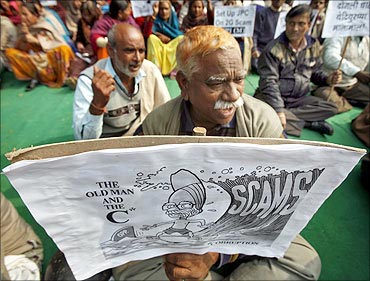
article